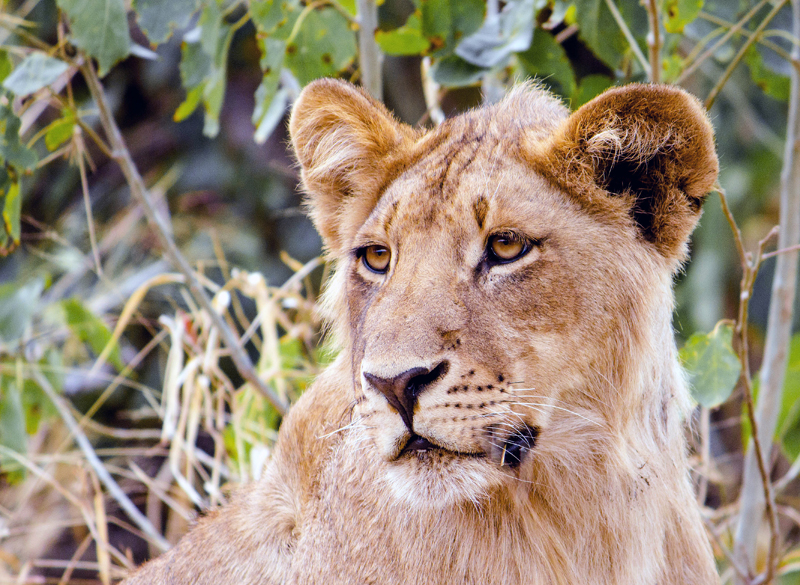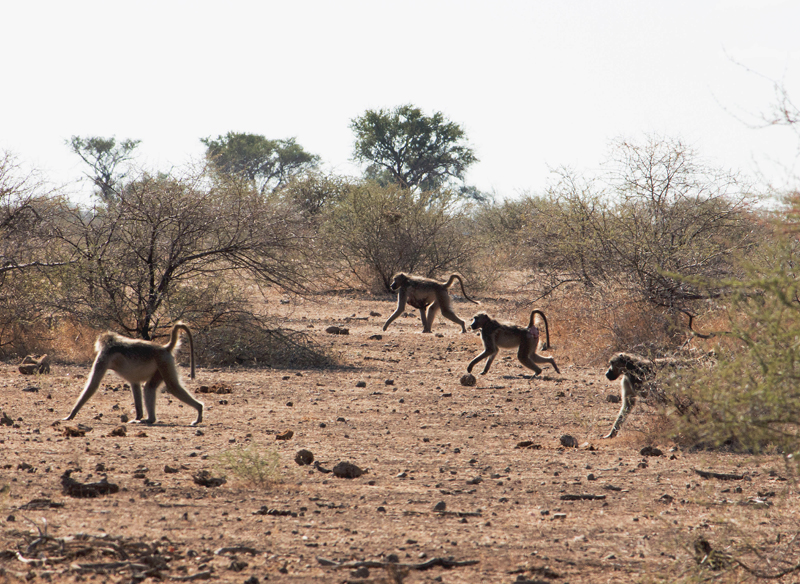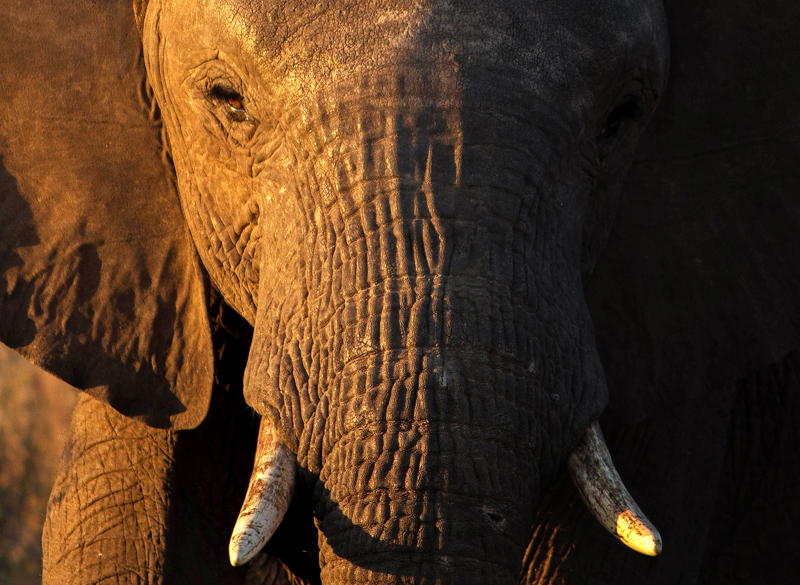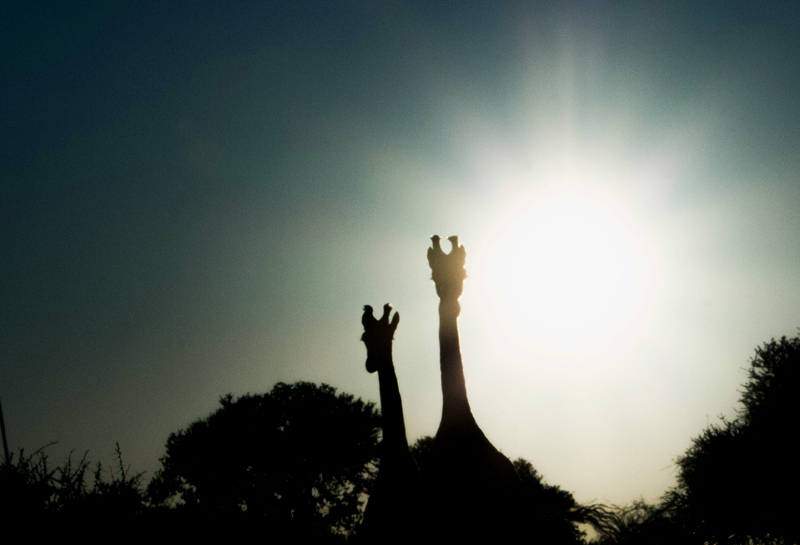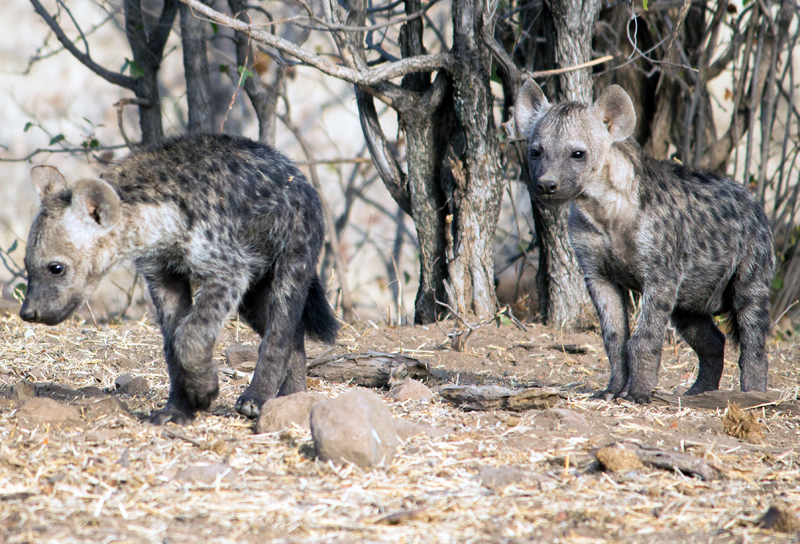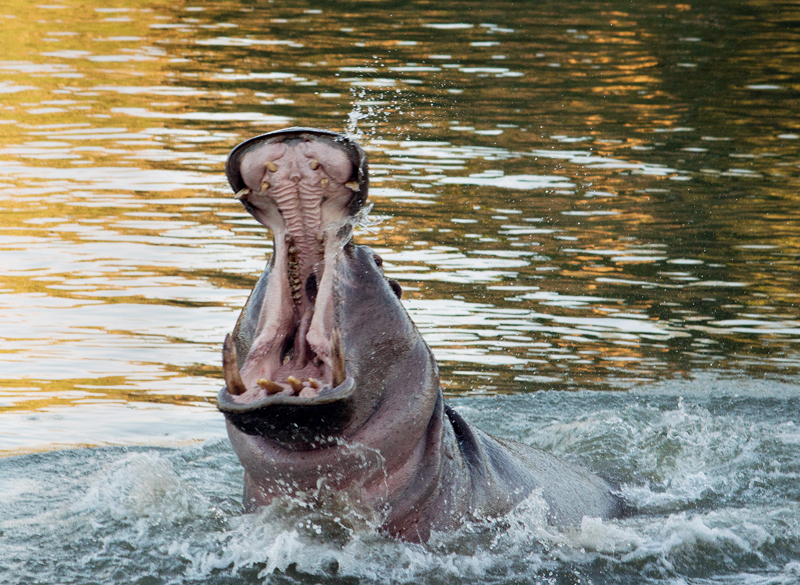By Mike True
I went to Africa with the same mindset as any Westerner might. To see wild animals, take some pictures, and maybe get a taste of culture. But what I would experience in Africa is beyond any expectation I could have drawn up in my somewhat naive frame of mind before the trip. What I expected to learn was somewhat fulfilled, yet it was the unexpected aspects of the trip that will forever be inscribed into my memory and, most importantly, my soul.
Much of our trip was spent in complete wilderness on a game reserve in eastern Botswana. And if you haven't experienced bush life, I promise you it'll never be what you expect. There's something magical and primitive about waking up in the middle of the night, wild animals all around you, calling to the stars or to their neighbors. Male lions strutting around, calling out to make sure their presence is known, impala snorting about some dispute that is underway, or jackals howling in warning of predators near. It's this symphony that makes walking the 60 yards to the bathrooms a journey. But I tell you what, there's nothing more lifting than that feeling of vulnerability of the bush. You really feel a part of the action, like you belong, like you have always belonged among these beasts.
In our time in Africa, every single day was spent out in the field. The amount of skills that I gained on this trip is astounding. Never before had I driven a 4x4 manual vehicle, learned about tracking, tactically using GPS, and studying the ecological dynamics of so many different species, all while assisting in research projects on baboons, genets, hyenas and lions. You felt so connected to the landscape, completely honed into the present, while all other distractions were left at home. No phones, no email, no social media, just 100 percent raw living. And that's exactly what wilderness does to you. It affects your psyche. It's therapeutic, stress relieving. It meets you with no sense of worry and greets you with a complete immersion in the flow of the wild.
Spend enough time in the bush and you notice the subtle changes in temperature, sounds, winds. You feel more alive and connected to your surroundings than you ever have. Most importantly, you begin to understand that wild animals aren't so different from who we are. Elephants have more than 400 various sounds they make to communicate and can detect individuals based on their unique "voices." Baby elephants run around and can hardly control their newly discovered extremity, spinning their trunks around with little to no restraint. Male teenaged elephants stray a bit from the herd and are the most curious with the vehicle when you come close. They give you a little attitude and strut their stuff until their mother tells them to knock it off. Most other animals are social, too, raise offspring together, have families, and protect each other as species. They make a living, survive, and pass down ancient knowledge to their young. It's beautiful.
It's through these similarities that we have so much to learn from wilderness. That selflessness can be evolutionarily beneficial, and reinforces that everything is connected. Or, if elephant populations rise too quickly, they begin to deteriorate the vegetative composition and drive out other species. And, if lion densities become too large, disputes break out between adjacent prides or individual male lions that can lead to death or exile. Every ecological dynamic that exists in wilderness is concerted to keep a delicate balance. Once that balance is disturbed, the entire system can collapse, and the ones effected the most are typically at the top of the food chain. And who is at the top of those food chains? That's right. The iconic animals that everyone is so wowed by — lions, cheetahs, leopards, and many other carnivores.
And here's the real kicker with Africa. Westerners have this delusional image of the big 5 (lions, leopards, elephants, buffalos and rhinos) on every inch of the continent, that wildlife is everywhere. I'm here to tell you that that couldn't be more inaccurate. Instead, there are people everywhere. Much of the wildlife is forced onto little pockets of protected land across the continent. This is a problem in a number of ways, but predominantly, a lot of these organisms require vast amounts of space. With so many people and land converted to farmland, that space is limited. And looking forward, Africa has seven of the 10 fastest growing countries of human population. We have ourselves a problem.
Plus, poaching is at an all-time high. Both the elephant and rhino are at risk, and it doesn't seem to be getting better any time soon. With rising demand in some Asian markets and varying degrees of dysfunctionality in African governments, poaching has become a huge problem. The wild parts of Africa are at risk, and it’s going to take serious efforts for wildlife to proceed to exist and roam free in these protected areas.
Luckily, ther'’s hope. Just about every single person that I met on this trip has a serious connection with wilderness. Everyone at one point or another has fallen in love with the area — instructors, researchers, conservationists, and arguably most importantly — us students. The passion from these people is radiating, and seriously moved me. It's a beautiful thing when so many people come together for the same mission. These are the people that stand up for wildlife — that when all odds are against the natural environment, they put their foot down and say no more. It’s people like this that we need, people that understand the benefits of wilderness, even if there isn’t an economic value attached. They understand the therapeutic value of wildlife. I know that I can't live without wild things, and that WE shouldn’t.
So it was this trip that really reinforced my mission — to preserve and protect wilderness and those that inhabit them, and to spread the good word. We have the power to live among other beings, to appreciate them, and to learn from them. Because, at the end of the day, they aren't too different from us after all.
So I want to leave you with a poem. This was read to us on our last day in camp and made a huge impact on us as students. Take away from it what you will, but I just hope it'll help you ponder similar themes to what I've written above.
Wilderness — Ian McCallum
Have we forgotten
that wilderness is not a place,
but a pattern of soul
where every tree, every bird and beast
is a soul maker?
Have we forgotten
that wilderness is not a place
but a moving feast of stars,
footprints, scales and beginnings?
Since when
did we become afraid of the night
and that only the bright stars count?
Or that our moon is not a moon
unless it is full?
By whose command
were the animals
through groping fingers,
one for each hand,
reduced to the big and little five?
Have we forgotten
that every creature is within us
carried by tides
of Earthly blood
and that we named them?
Have we forgotten
that wilderness is not a place,
but a season
and that we are in its
final hour?
